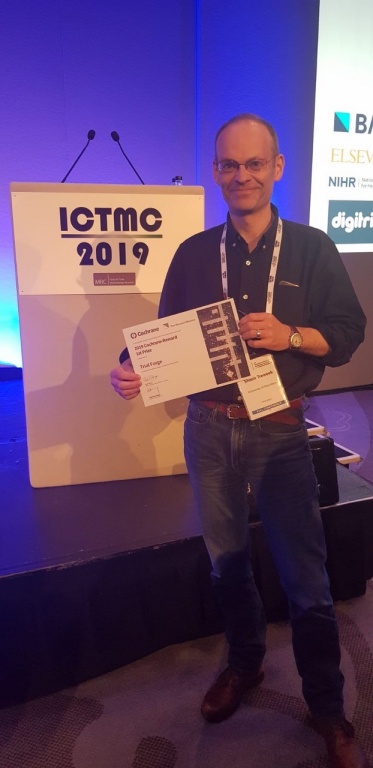Aberdeen academics have won a prestigious international award for making trials of new healthcare treatments more efficient.
Professor Shaun Treweek and his team won the 2019 Cochrane-REWARD prize for reducing research waste after starting an initiative called Trial Forge.
Randomised trials are the gold standard for evaluating healthcare treatments - thousands are done every year. They are considered the cornerstone of evidence-based healthcare because they offer the fairest tests of treatments, therapies and initiatives.
There’s a lot of research waste – some estimates put it at over £100 million every year. This waste occurs during five stages of research production: question selection, study design, research conduct, publication, and reporting. Much of this waste appears to be avoidable or remediable, but there are few proposed solutions.
Oddly, the evidence base for how to make the trials process more efficient is remarkably thin – something Trial Forge aims to address.
Trial Forge looks at making small improvements in lots of different areas which add up to a large overall improvement.
“In 2012 British Cycling’s performance director Dave Brailsford put Team GB’s dominance at the Olympics down to marginal gains,” explains Professor Treweek. “The idea was that if you break down everything you could think of that goes into riding a bike, and then improved it by 1%, you will get a big gain when you put them all together. The British Cycling results from the 2016 Rio Olympics show how successful this technique is. Trial Forge aims to do the same thing for trials.
“Trial Forge tries to make trials more efficient by looking for marginal gains across all trial processes, from research question to how we share the results with patients and health professionals. It encourages everyone connected with trials to be more sceptical of what we do by asking for the evidence behind all of our trial decisions.”
The team picked up the award at the International Clinical Trials Methodology Conference in Brighton on October 8.
Professor Treweek added: “We’re delighted to have Trial Forge recognised with this award. It’s quite ironic that scientists carry out thousands of randomised trials every year in order to find out better ways to treat people, but so little work is done into making the trials themselves more effective.
“Trial Forge is very collaborative, it’s not just the team in Aberdeen. We want to be better at testing the things we do in trials so that we don’t reinvent the wheel each time we do a trial. Those small improvements will add up.”


